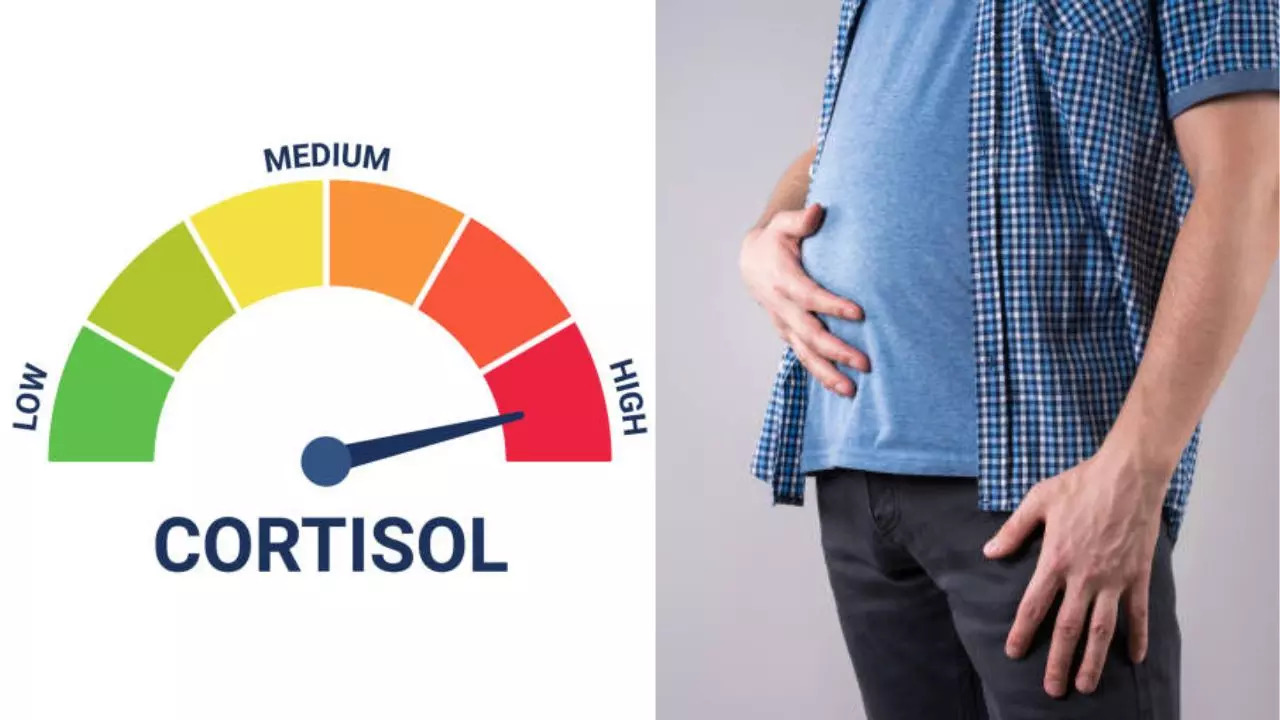
Stress and its underlying conditions can instantly spike your levels of cortisol – a steroid hormone produced by the adrenal glands with many important body functions. However, in adverse situations, high cortisol levels cause a range of negative symptoms which include weight gain, acne, and fatigue. Doctors say everyone has high cortisol from time to time, and levels vary throughout the day as it is a part of your body’s natural response to threats of harm or danger.
However, if your body is consistently making too much cortisol, it usually indicates an underlying health problem. A few signs of that are: Bloating after every meal According to experts, bloating and fluid retention is a product of high cortisol which is responsible for minerals and salt control in the body. When it gets high, cortisol increases salt retention resulting in bloating.
It can also lead to a drop in potassium levels, impeding insulin function and causing type 2 diabetes. Neck hump Extremely high levels of cortisol for a consistent period of time can cause increased fat synthesis – leading to Cushing syndrome. In this, the fat produced often deposits in the neck, known as lipodystrophy which can produce the characteristic buffalo hump.
Cushing syndrome can also be caused by an adrenal tumour, lung tumour, or glucocorticoid medications. Craving sugar all the time When cortisol levels are extremely high in your body, you may get cravings for food - especially sweet, fatty, and salty foods. Under stress, you are more likely to order sugary beverages along with fried foods like fries and would not want to consume any healthy food like fruits and vegetables.
Severe fatigue High cortisol levels over a long time can make you feel excessively tired, even without working too much or taking adequate rest. According to doctors, it becomes a part of your body's natural response to threats of harm or danger. Being forgetful and short-term memory loss Even though it may sound harmless, being forgetful and having memory loss are some of the main symptoms of high cortisol levels in your body.
Doctors say when the hormone spikes, your executive brain function - like working memory to process information and solve problems—becomes low. What causes cortisol imbalance? According to doctors, there are some common culprits behind cortisol imbalances of every type, which include: Stress Excessive and prolonged stress is the primary cause of cortisol imbalance, whether high or low. Exercise Exercise is considered good stress, but up to a point.
While it can lead to an immediate rise in cortisol with exercise, the overall impact is to improve mood and lower stress. But if you overdo the workout, the stress becomes detrimental. Nutrition Doctors say the foods that you eat can help reduce cortisol or spike it.
Processed foods that are rich in carbs and sugar immediately help lower cortisol at first, but the blood sugar spike caused by these foods can actually, over time, increase stress, inflammation, and cortisol levels in your body. Get Latest News Live on Times Now along with Breaking News and Top Headlines from Health and around the world..














